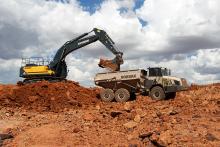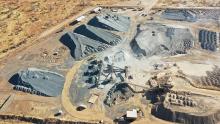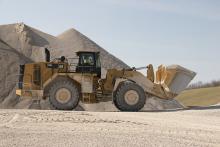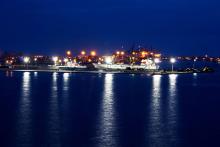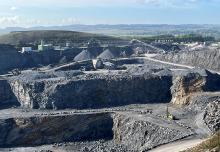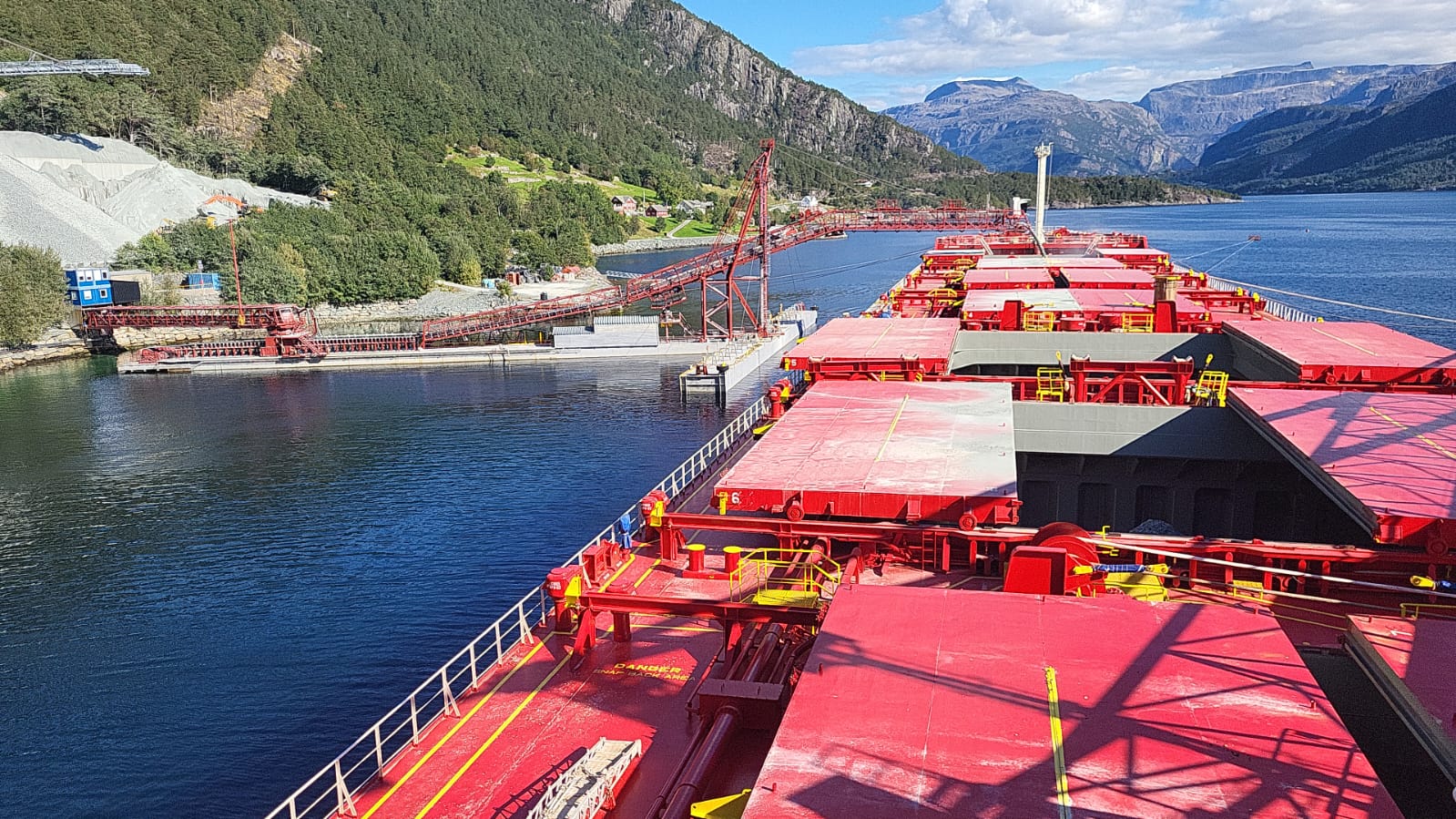
As the demand for aggregates in the European Union is steadily growing, more and more industry players are considering accelerating their expansion plans by launching new projects and raising their production capacities. One such company is Bontrup Aggregates – a leading producer of aggregates in the Netherlands and the EU and part of the Bontrup Group, an industrial holding with assets in the dairy, logistics and construction sectors.
Established in the 1960s as a family business, the Bontrup Group has managed to turn its aggregates arm - Bontrup Aggregates - into a major national and wider European sector name.
Despite the generally tough business environment in the Eurozone, caused largely by high inflation rates and the consequences of the Russian-Ukranian war, the company has significantly strengthened its positions in the domestic market and overseas in recent years, planning a further expansion over the coming year.
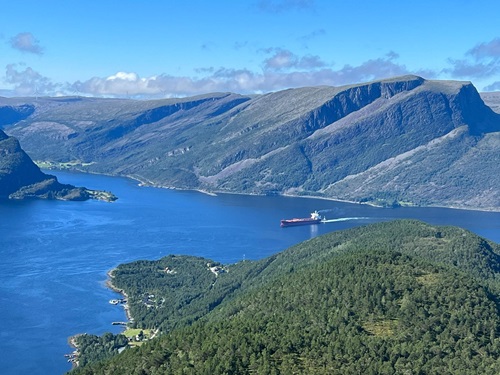
Bontrup Aggregates owns and operates Bremanger Quarry in Norway, its flagship site with overall reserves of more than 1 billion tonnes of stone. The firm also has long-term partnerships with Glensanda Quarry in Scotland, Stevin Rock in Ras Al Khaimah, UAE, and several other European rock armour [Riprap] quarries.
The company's further expansion was recently confirmed by Flip Dötsch, business development and marketing manager for the Bontrup Group, in an exclusive interview with Aggregates Business.
Commenting on Bontrup Aggregates' 2023 performance, Dötsch said the company had a generally solid year while focusing on consistent long-term growth.
To enable this, the company continues to innovate in its manufacturing and operating processes, expanding its production and logistics capacities. A recent example is the addition of two bulk carriers to its fleet and a new 500-ton mobile crusher at Bremanger Quarry.
Bontrup Aggregates extracts around 5 million tonnes of Bestone aggregates per year from Bremanger Quarry. It plans to increase its output to 8 million tonnes per year with the simultaneous expansion of its sales markets.
"We recently started structural deliveries to the Port of Tilbury [in Essex, southeast England], given the strong demand for our products in the UK market, particularly for Bestone," highlights Dötsch.

Bestone is a very hard and extremely homogenous rock (LA<15) and rough (PSV>65). "Its intrinsic values make it the perfect aggregate for safe and durable roads. It is the ideal aggregate to reduce road noise levels, an increasingly important factor in awarding highway works in the UK and elsewhere in Europe," explains Dötsch.
Dotsch expects the UK to be one of the priority markets for Bontrup Aggregates in the coming years, with the Port of Tilbury being a sound logistical choice for the firm due to its ability to receive its largest self-unloading vessel (90K tonne). The port is also said by Dotsch to have great rail, barge and truck connections to southeast England market customers. Bontrup Aggregates also plans to increase its deliveries to other EU ports and onward transport hubs.
In its internal classification, Bontrup Aggregates separates the market into structural and project markets. "Structural means processing all gradings at asphalt, rail and concrete terminals. At the same time, it means larger volumes of materials for projects such as building new windmills, pipelines, and breakwaters in ports and large foundation works," explains Dötsch.
One example is a project in Senegal, which was completed earlier in 2023. As part of the project, Van Oord contracted Bontrup Logistics to deliver about 250.000 tonnes of 1-5” rock product to the Bay of Dakar for use in developing Sangomar Field [containing oil and gas, located around 100kms south of Dakar].
Bontrup Logistics' vessel, Bontrup Pearl, acted as an offshore rock terminal moored in the Bay of Dakar, receiving the Bremanger Quarry-sourced aggregates via Supramax vessels in the 50,000 to 60,000t DWT range. The product was loaded onto Bontrup Pearl via ship-to-ship operations. At the same time, Stornes, Van Oord’s flexible fall pipe vessel, was carrying out rock installation works nearly 100 km away at Sangomar Field. In turn, Bontrup Pearl transferred the rock product to Stornes while Stornes was stationed in a 'dynamic position' under the discharge belt.
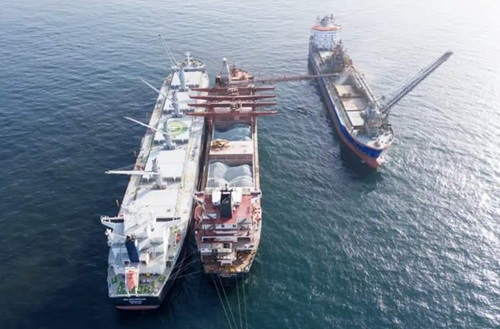
Dötsch believes the biggest market growth driver for Bontup Aggregates is the rising demand for high-quality aggregates. "The company's Bestone product remains the most used aggregate for asphalt in the entire Benelux region," he stresses. Dötsch expects more countries to choose Bestone for their new infrastructure projects. One recent example is from Germany, where Bestone OPA 5-8 is used on highways to secure a safe, durable road with silent reduction.
With over one billion tonnes of reserves, Dötsch says Bestone can be a reliable aggregate source for customers over the long term.
Another business growth driver, predicts Dötsch, will be the need to source aggregates sustainably. Bontrup Aggregates has progressed in this area, with most of the company's products coming from an energy-neutral quarry. The firm ships with the largest self-unloading bulk carriers in the world, says Dotsch, allowing it to ship at scale, reducing environmental impact. In addition, according to Dötsch, Bontrup Aggregates is working with innovative partners such as Sodaflexx to reduce the impact of its vessels on the environment. The same processes are followed for Bontrup Aggregates' inland barges.
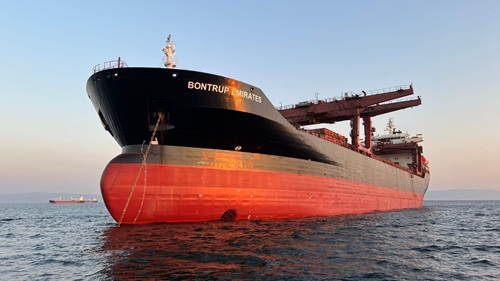
Being a capital expenditure-driven business, Bontrup Aggregates is focusing on long-term investments. At the same time, according to Dötsch, there is also a need to remain flexible to deal with the dynamics of short-term demands as the market remains highly volatile.
Dötsch says another challenge or an opportunity for Bontrup Aggregates is in the industry energy transition, as the company must run its operations as much as possible on clean and green energy. An example is Bremanger Quarry, also known as the 'Green Quarry', where gravity power is actively used to produce the Bestone.
From a global market perspective, Dötsch believes infrastructure projects are getting bigger, creating a higher demand for quality building materials. He also cites the growth of offshore wind parks, land reclamation projects and coastal protection projects due to rising sea levels. All this, he continues, creates the simultaneous need for higher-capacity logistics hubs, such as expanded ports.
Dötsch notes that the global energy transition has created innovative projects like 'offshore energy islands' like MOG II. MOG II will establish an offshore high-voltage grid connection from the Belgian offshore wind zones to an onshore high-voltage transmission grid, making it the world's first artificial energy island. Bontrup Aggregates supplies aggregates to the project, with large volumes needing to be installed in short time windows.
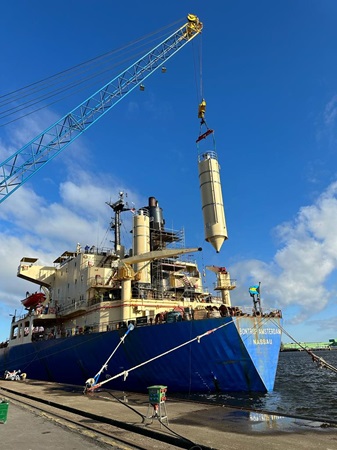
Dötsch says projects are increasingly being managed internationally via an integrated approach to engineering, rock production, logistics solutions, and different methods of placement by the contractor. Quarrying is part of a total solution tailor-made for each project. Such an approach demands close cooperation, he stresses. This is good for Bontrup Aggregates as the firm prefers to be involved in projects in their early stages. It allows it to partner with project management to optimise the design, material production, product supply, delivery and installation methods. "Experience shows that we can achieve significant savings, both financially and in time, by making small adjustments in design and/or the logistical solution," says Dötsch.
Next to energy transition, another global trend, highlighted by Dötsch, is the decarbonisation of business operations. "With our 'Green Quarry' in Bremanger, we show our thinking and how we innovate with nature to reduce and mitigate the environmental impact," he notes.
Like all leading EU-based aggregates producers, high Eurozone inflation remains a serious problem for Bontrup Aggregates. However, Dötsch says the company does not believe that it could lead to the failure of any of its key projects.
"The current high inflation rates will temporarily slow down the building industry, but large-scale projects supporting the energy transition will continue. In the end, houses are still needed, and the maintenance of roads will always be needed."

